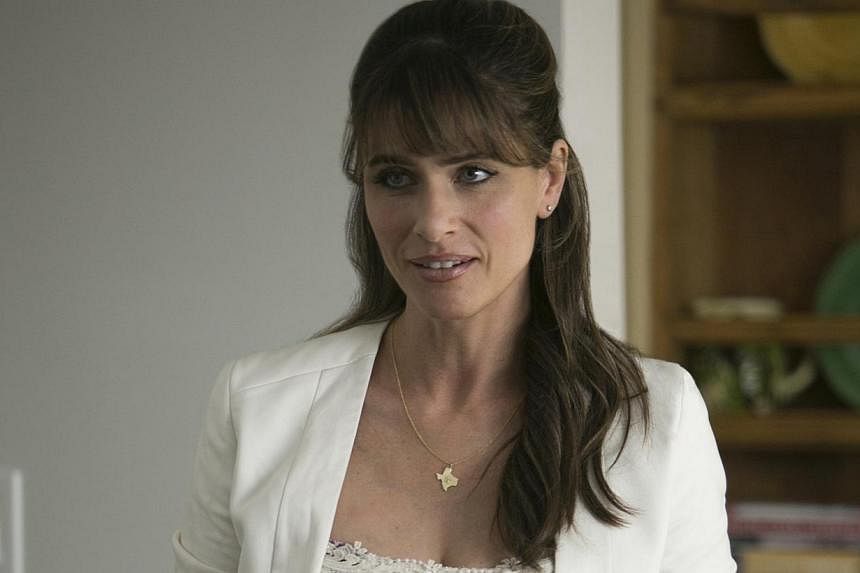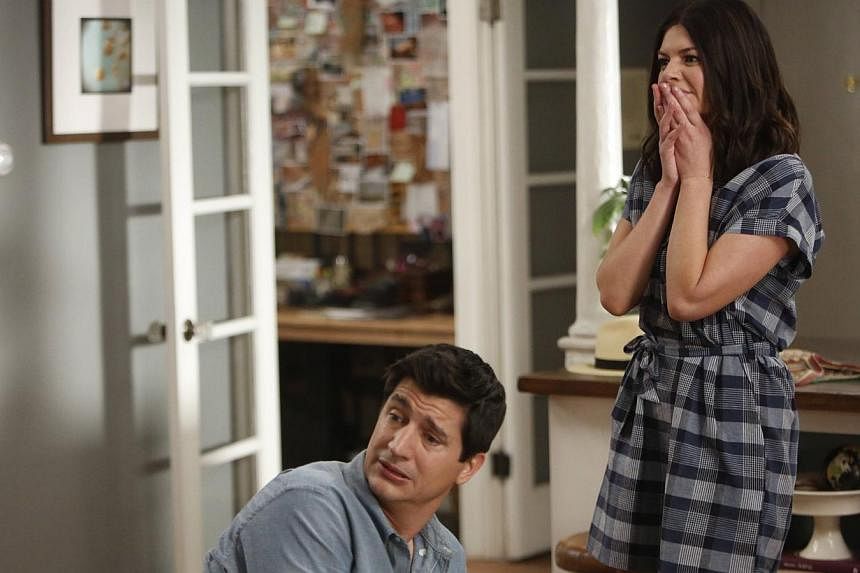The search for love is well-trodden ground in television and film. What happens after you find it is another matter.
Two new TV comedies tackle this neglected subject and from very different angles.
Togetherness takes a hyper-realistic approach and finds both laughter and tears in the hidden purgatories of coupledom. Mark Duplass (The Mindy Project) and Melanie Lynskey (Two And A Half Men) are Brett and Michelle, a married couple trying to revive their moribund sex life after having children and settling into a staid suburban routine.
This prompts a comically failed experiment in light bondage, followed by an equally fruitless night at a fancy hotel. Emotional intimacy has faded too, with each feeling stifled and unfulfilled but unable to discuss it.
For Michelle's sister Tina (Amanda Peet) and Brett's struggling-actor friend Alex (Steve Zissis), who are close to 40 too but still single, it is the flip side of the coin.
Tina lurches from one doomed relationship to another, unconvinced she can do better or stand on her own two feet. Alex, meanwhile, is overweight and losing his hair, and despairs of ever landing a decent acting gig.
After he is evicted and Tina dumped via text, both end up crashing at Brett and Michelle's, where the two develop an unlikely friendship that slowly turns into something more.
After a sluggish first episode, the series, created by Duplass and brother Jay along with Zissis, comes into its own with its delicate insights into domesticity and relationships - such as the aching for space and individuality and how friends and family can be enlisted as buffer states.
The Duplasses wrote and directed the indie comedies Baghead (2008) and Jeff, Who Lives At Home (2011), works which are associated with the so-called "mumblecore" style of independent cinema because of their naturalistic dialogue.
That naturalism serves Togetherness well - nothing feels contrived or forced, not even Michelle's attempts at recreating Fifty Shades Of Grey in the bedroom.
The ordinariness of it all makes it compellingly relatable. The "cliffhanger" at the end of the eighth and final episode of the debut season is so utterly low-key, and yet you want to know how it turns out for these characters. Just as well, then, that a second season is in the works.
Marry Me is a far more conventional enterprise. Produced by David Caspe, who was behind the now-defunct couples-and-friends comedy Happy Endings, it also starts from the premise of "not quite so happily ever after".
The couple here are Annie (Casey Wilson) and Jake (Ken Marino), who have been dating for six years and everyone expects them to get married.
But their relationship is marred by one comical disaster after another. When they go on a romantic holiday and he does not propose, the high-strung Annie goes ballistic and insults his mother and their friends - only to turn around and find him on bended knee flanked by those same people.
She tries to repair the damage by turning up at his office to ask him to marry her - but only makes it worse, getting him fired when she reveals he lied to his boss.
Nevertheless, the pair make up and get engaged. Now they must navigate the realities of moving in together, planning a wedding and adjusting to each other's quirks.
The humour here recalls the glib, rapid-fire gags of sitcoms such as How I Met Your Mother, with dialogue crammed full of one-liners and pop- cultural references.
A fair few of these hit the mark, with sly digs at everyone from self-serious yoga teachers to online braggers (Annie wants to "take a victory lap around the Internet" to announce their engagement) and that one friend who always takes karaoke way too seriously.
The frequency and randomness of these zingers, however, make it seem as if there is a bunch of comedy writers in a room somewhere crossing jokes off a list. And they will find space for that witty comment they have been saving up about Tinder or grown women who wear rompers, context be damned.
To be sure, there is a place for sitcoms like these, and there is nothing wrong with knowing, from the outset, that this is not going to win any major awards or ever get too deep.
Still, shows such as How I Met Your Mother have spoilt the market by demonstrating that you can do that and still be innovative and even subversive once in a while.
Marry Me does not look like it is even trying to, often trotting out the same tired tropes about women (Annie is the typical hysterical female), gays (she has two flamboyantly homosexual dads) and jealous future mothers-in-law.
Every relationship problem is predictable and predictably solved. It is hard to see where the show can go once it runs out of pre-marital hiccups.



